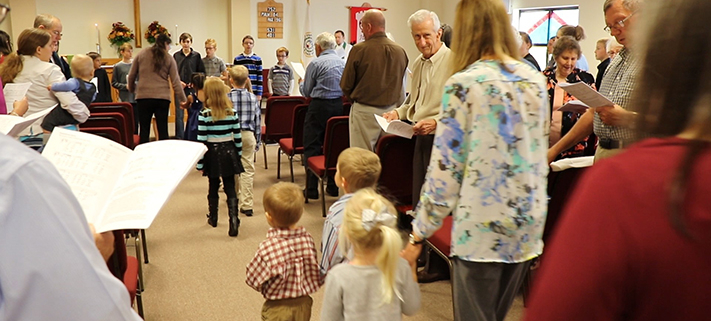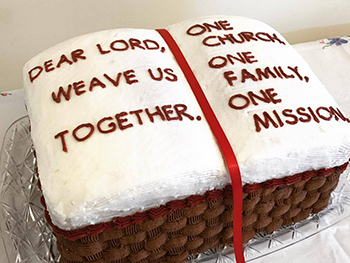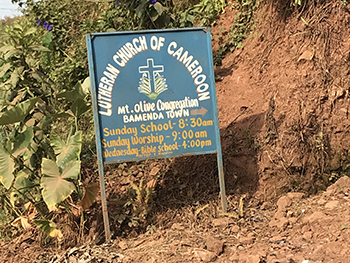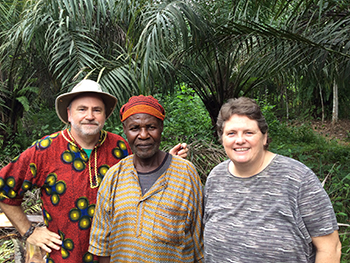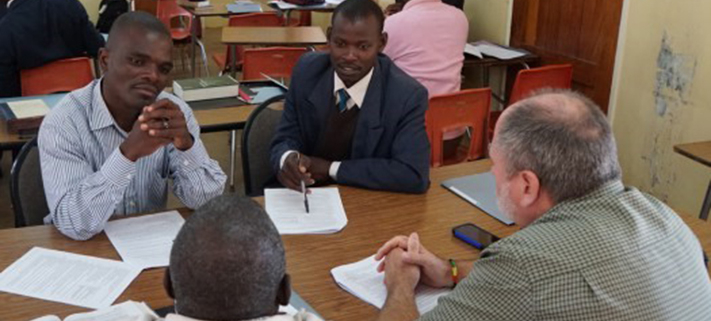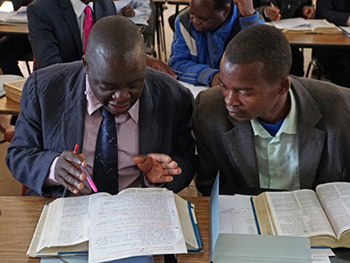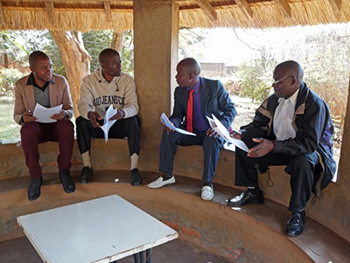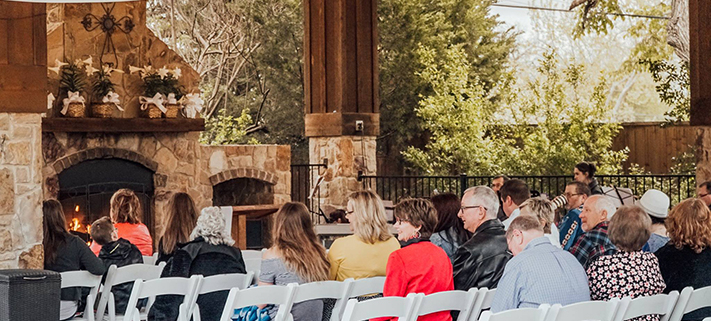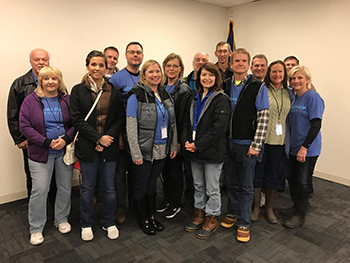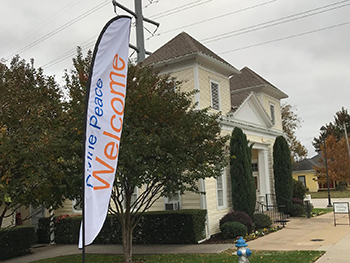Welcome a new writer: From 2005-2017 Michael Berg was pastor at St. John’s Lutheran in Wood Lake, MN. He graduated from the International Academy of Apologetics, Evangelism, and Human Rights in Strasbourg, France in 2013 and is a fellow of the Academy. He is also a member of the Evangelical Philosophy Society. In 2017 he received a Doctor of Ministry degree from the Talbot School of Theology at Biola University. His doctoral project was “Masks of God: Vocation as the Proper Setting for Human Flourishing.” He now teaches at Wisconsin Lutheran College where he and Dr. Kerry Kuehn from the physics department offer a summer course on practical apologetics geared towards pastors, teachers, and interested laity (wlc.edu/apologetics).
Apologetics in Preaching
The Cross as Solution to the Problem of Evil
A favorite C.F.W. Walther line: “A preacher must be able to preach a sermon on faith without ever using the term faith.”1
Walther’s warning was against preaching faith as if it were a task the burdened sinner must accomplish on his own, thus confusing law and gospel. It was also a warning against turning the sermon into a theological lecture rather than framing the “address so as to arouse in every poor sinner the desire to lay the burden of his sins at the feet of the Lord Jesus Christ.”2
The pastor must define faith in technical terms, but he must also realize that there are devastated people with him every Sunday who need comfort, not a lecture. His sermons cannot always be about the doctrine of faith but a proclamation of the gospel which arouses faith. Can you preach faith without using the word? Walther says you must.
Walther’s comment about faith and preaching applies also to apologetics and preaching. Preaching apologetically is more than a well-placed apologetic argument here or there. It is rather an attitude, an attitude of concern, one worthy of Peter’s admonition: “Always be prepared to give an answer to everyone who asks you to give the reason for the hope that you have. But do this with gentleness and respect” (1 Pt 3:15-16).
Apologetic debates … are not for pulpits.
JP Moreland called apologetics a “ministry of caring.” He was contrasting the apologetics of people like William Lane Craig with the apologetics in which an average Christian pastor or layman might engage. Craig is famous for debates with popular atheists. He’s good. Really good. You should watch the debates. These are important academic exercises. Nor should we forget that Craig and others in the field have knocked the blinders off many intelligent skeptics who in turn reconsidered the claims of Christ. Yet these apologetic debates are better suited for Oxford and Cambridge then for Springfield and Greenville. They are not for pulpits.
Sinner-saints always harbor doubts.
Preaching apologetically is simply concerning ourselves with the skeptics in our pews—skeptics the faithful in our pews will encounter, and the skeptic the faithful deal with every day, the Old Adam. Think of the man Jesus encountered in Mark 9: “I do believe; help me overcome my unbelief” (Mk 9:24). Sinner-saints always harbor doubts. The preacher does damage if he implies that doubting is a sin to be overcome by the sinner himself. “Stop doubting and believe,” he demands without pointing to evidence, that is, making a case (an apologia) for the faith he espouses. We should never forget that when Jesus encountered Thomas, he accompanied a command with his physical wounds in an act of caring. The goal was faith and if it took a hand shoved into the side of Christ, so be it.
That goal of faith is the same for today’s preacher. The apologetic task is incomplete without the proclamation of law and gospel. There would be no point in apologetics without it. The apologist can only knock down arguments against Christianity or assert positive proofs for a viable claim on truth. The apologist can never give faith; this is the work of the Spirit. It has always stuck me that Jesus commanded of Thomas exactly what Thomas could not do on his own, namely, believe. Certainly Jesus knew this? But as the saying goes: Whatever God demands of us; he gives to us in Christ. Jesus said to Thomas, “Reach out your hand and put it into my side. Stop doubting and believe” (Jn 20:27b) and then Jesus gave Thomas the faith to do just that, believe. The apologist is to proclaim the truth of the gospel, offer evidence when called to, and then let Christ do the real work through the Spirit.
It may be helpful then for the pastor to keep these thoughts in the back of his mind as he prepares sermons: What might doubting Thomas say about my assertions? What might the skeptic say? What might my people say to challenges from skeptics? What does the Old Adam in my people say? And since I am first preaching to myself, what does my Old Adam say about this claim? The preacher is then in a caring mindset sensitive to his listeners’ doubts.
A pattern emerges. First the preacher asks the above questions when encountering a text. He then searches for answers. Somebody out there has thought about these problems before. He might not find a satisfactory answer, but at least he has thought about the issue for the sake of himself and his listeners. After thinking it through he can then begin to craft a sermon or an evangelistic tactic that brings the academic exercise of apologetics to the apologetic task of caring.
Preaching apologetically will thus include some apologetic facts but not a full blown academic debate. It will include pulling the rug out from under a material-only worldview but without a “gottcha” brashness. It will include “Thus saith the Lord” but also a humble attitude. Above all it will aim to arrive at the cross of Christ as efficiently as possible so that the skeptic (and the believer) will see that this is not about winning an argument but about a real Savior accomplishing a real salvation for real sinners. The Christian faith is a claim on reality. These events really happened, and this is good news for you and me.
In this six-part series we will engage some of the apologetic arguments used throughout the history of Christianity. We will then wed them with Christian preaching careful not to obscure law and gospel. We will conclude each issue with an example of such preaching.
The preacher cannot, of course, fully develop each apologetic argument in a sermon, nor would he want to. Nor can we do so here. We will not even come close to touching on all the major apologetic issues of our day. This is for personal study. We hope only to whet the appetite of the evangelism-minded preacher with a handful of resources to begin or continue his journey. Nor are the topics chosen necessarily the most important. They were chosen because they come up naturally in the lectionary in the month or so following an issue’s publication.
This issue’s topic is the problem of evil and the very Lutheran solution of the theology of the cross. Pentecost 22 in Year B (October 21, 2018) lends itself to such a discussion. Mark records Jesus disgust with James’ and John’s discussion about the seating arrangement in the Kingdom. They were being theologians of glory precisely when Jesus was heading to Jerusalem for his date with the cross. Isaiah continues his suffering servant portrait of the Messiah in chapter 53, and the writer to the Hebrews claims Jesus to be our sympathetic High Priest. The psalm selection fits beautifully: Psalm 22.
Now to the problem of evil. How can we reconcile a God of love with a world of evil? Atheists revel in this conundrum. Many point out not only the inconsistency of the situation as they see it but also the violence done in the name of religion and specifically the Christian God. Even more boldly, some assert that God is a moral monster with a long rap sheet of genocide and misogyny. He has even been accused of child abuse at the cross.
Accusations deserve an answer but not a theodicy.
Accusations deserve an answer but not a theodicy, an attempt to reconcile a God of love with evil by vindicating God. Theodicies try to rescue God from his bad reputation. They do not let God be God. The apologist walks a fine line here. Declaring that God allowed or even sent a tragedy to a specific people because of their sin is bad apologetics and bad theology. But so are the seemingly more benign theodicies we hear all the time. We have all heard, and maybe even said, “When God closes a door, he opens a window.” Maybe. He may also shut every escape like he did in that locked room the Sunday after Easter so that Thomas had nowhere to go but to him. Trite answers to evil are not helpful to the truly suffering. Our job is not to treat God like a piece of property we are trying to sell with a little curb appeal but rather to declare who he is.
Trite answers to evil are not helpful to the truly suffering.
The theologian of glory speculates; the theologian of the cross calls a spade a spade. There is a careful balance in the theology of the cross between speculation and utter meaningless. There is meaning to life, including and maybe most of all meaning to suffering. While the theologian of the cross is barred from speculating, he is not barred from ministering. Consider four spiritual reasons for suffering: sufferings strengthen Christians (Hb 12:7), sufferings teach compassion for others (Ph 2:1-11), sufferings (specifically crosses) are a mark of the church (Ps 116:10 and AE 27:47), and sufferings drive us to repentance, which by the grace of God, hopefully leads us to the Scriptures and ultimately to faith (Pv 3:5). C.S. Lewis called this last reason “God’s megaphone.”3 Only in suffering do we yearn for salvation.4
While the theologian of the cross is barred from speculating, he is not barred from ministering.
We should also allow God his right to punish the unbeliever and chastise the believer. Our contemporary Western world has a problem with God’s anger. We might think, “What’s his problem? Is it really that bad that he must allow earthquakes and disease?” Those suffering in the third-world often have a different perspective. Their complaint is not that God is too angry but too patient with injustice. “How could the Christian God allow such inequality? Why does he not smite the greedy West?” Not only this, but when we look back at the ancient Near East, we are taken aback by the violence and immorality. When we consider that God knew about it all and saw his creation so defiant and so flippant about the rights of human beings, we might wonder why he didn’t rage against humanity sooner. How would you react if your children were mistreated, raped, even sacrificed to the local god? God witnessed this happen to his children. Perhaps he is more patient then we thought.
There are also some logical arguments that combat the atheist’s accusation. First, the ability to define evil at all assumes the existence of a universal morality and therefore a free, powerful, intelligent being outside of time and space (the moral argument). Second, not liking something (a God who allows evil) does not mean that that something (God) does not exist. If that were so, why not wish away cancer? Third, love supposes freedom. In love God allows us freedom. We have misused this freedom and there are ramifications.
The topic deserves more space then we have here. We have to whittle it down even more for a sermon example, but let’s try.
Doesn’t it seem that the disciples are constantly trying to block Jesus’ road to the cross? They saw success and craved it. Who wouldn’t? But what they saw as good was the opposite. Jesus knew that an earthly kingdom would be nothing without a payment for sin. So what seemed to be evil (the cross) was actually the highest good. And what seemed to be good (not being executed) was actually evil. It’s hard for us to blame the disciples though. It’s backwards to think that evil things (failure, disease, injustice, violence) might actually be the opposite.
Don’t get me wrong, they are bad, even evil. They would not even exist without sin. But we are to call a thing what it is according to Scripture and not according to sight. So the cross, with all its embarrassment and violence, is good and not just the evil it appears to be.
Well, what about the crosses you bear? Let’s not sugarcoat life here. Let’s not argue about who is the greatest like the disciples did in the shadow of the looming cross. Some of you will go bankrupt. Some of you will die of a disease you’ve never heard of. Some of you might bury your own children. It seems a little small to argue about who is the greatest at such moments, doesn’t it?
So how can we reconcile this coming evil with a God who is constantly telling us that he is love? That might be easy for you if life is going well at the moment. But talk to me when you lie in a hospital bed or when you once again try to intervene with your drug-ridden friend or relative. Tough stuff. The conundrum of a loving God and an evil world has led to many doubts and even atheism. So what’s the answer? Let me boil it down to a few options.
- Option one: God is not powerful enough to stop evil all the time. The devil and God spar and sometimes God wins and sometimes (a lot of times, it seems) he loses.
- Option two: God does not care enough to stop evil. This is an even worse scenario.
- Option three: God simply does not exist. Evil is random and has no meaning. If this is the case, then half of life has no meaning, and that’s on a good day.
But may I suggest a fourth option? God is in charge of evil. It sounds dreadful, but it is truly comforting. Think of Job. God gave the devil permission to go after Job. Dreadful. But what was the result? Job’s faith was strengthened. And isn’t that the goal? What seemed evil was actually good. I wonder if God has given Satan permission to attack you? I don’t know, but I do know that it may be for no other reason than for you to come to Christ in a desperate state. And that’s exactly where you need to be to receive his beautiful promise of life in him.
If the goal is faith in him and the opposite of faith in him is faith in anything else (doctors, government, ourselves), then God must first rid us of this false faith to make way for the Holy Spirit. And if it takes suffering, so be it.
A fourth option: God is in charge of evil.
So, we have more than a God who fights evil, we have one who uses evil for our eternal good. We have more than a God who balances out good and evil but a God who became a curse for our sakes. Listen to Isaiah describe Christ, “Yet it was the LORD‘s will to crush him and cause him to suffer, and though the LORD makes his life a guilt offering, he will see his offspring and prolong his days” (Is 53:10b). Listen to the writer to the Hebrews describe the same Messiah, “For we do not have a high priest who is unable to sympathize with our weaknesses, but we have one who has been tempted in every way, just as we are—yet was without sin” (Hb 4:15). Listen to Jesus say to his disciples, “For even the Son of Man did not come to be served, but to serve, and to give his life as a ransom for many” (Mk 10:45).
This is finally what Paul meant when he said, “In all things God works for the good of those who love him, who have been called according to his purpose” (Rm 8:28). Even in the most dreadful evil, the cross, he had you in mind. Even in your most dreadful evil, he has you in mind. So enter the darkness of your crosses with this in mind: I have a sympathetic High Priest who not only knows what I go through, but has gone through it already. Even more, he went through a crucifixion to pay for my sins. All this for my good, my eternal good.
And then emerge on the other side of such evil with Paul’s delight, “We also rejoice in our sufferings, because we know that suffering produces perseverance; perseverance, character; and character, hope. And hope does not disappoint us, because God has poured out his love into our hearts by the Holy Spirit, whom he has given us” (Rm 5:3-5).
How much more than are you able to love your suffering neighbor, not with trite answers to their pain, but with a real answer, a real Savior, a real comfort?
Written by Michael Berg
1 The Proper Distinction between Law and Gospel, C.F.W. Walther, 1986 CPH, p. 260.
2 Ibid., p. 260.
3 The Problem of Pain, C.S. Lewis, 1962 Macmillan, 93.
4 The Theology of the Cross: Reflections on His Cross and Ours, Daniel Deutschlander, 2008 NPH, 114.
Books for further study:
Heidelberg Disputation by Martin Luther
Luther’s Theology of the Cross: Martin Luther’s Theological Breakthrough by Alister McGrath
The Theology of the Cross: Reflections on His Cross and Ours by Daniel Deutschlander
On Being a Theologian of the Cross by Gerhard Forde
Is God a Moral Monster by Paul Copan
The Problem of Pain by C.S. Lewis
The Problem of Suffering by Gregory Schulz
Fall planning:
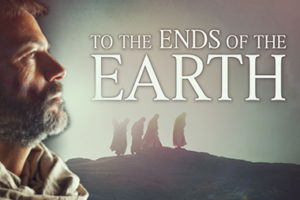
Worship resources for Mission and Ministry Sunday, October 21, or another time, complementing the film To the Ends of the Earth are available at welscongregationalservices.net/totheendsoftheearth: a sermon outline; a new hymn with accompaniment options; and a unison song for children, choir, or soloist (please share the link with musicians).
 C18 is a national outreach program with a goal to connect with 1 million unchurched people. Advent planning resources for C18 are available at welscongregationalservices.net/c18. More resources will follow.
C18 is a national outreach program with a goal to connect with 1 million unchurched people. Advent planning resources for C18 are available at welscongregationalservices.net/c18. More resources will follow.
Learn about how WELS is assisting congregations by encouraging worship that glorifies God and proclaims Christ’s love.
WELS Commission on Worship provides resources for individuals and families nationwide. Consider supporting these ministries with your prayers and gifts.
[fbcomments num=”5″]

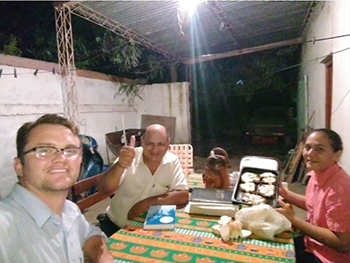

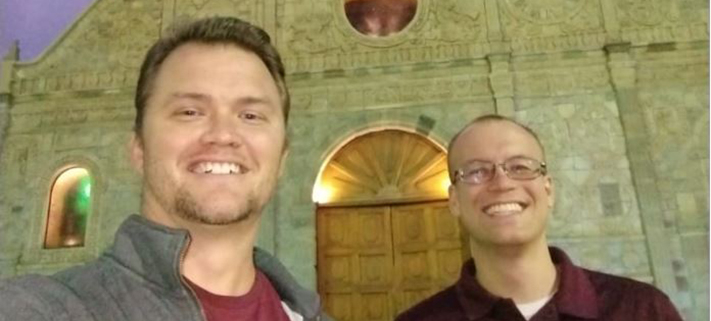




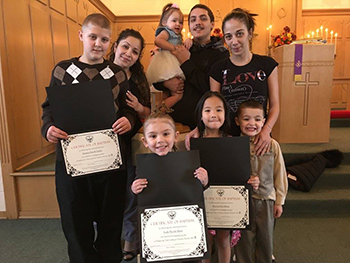
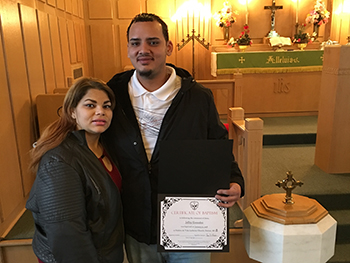
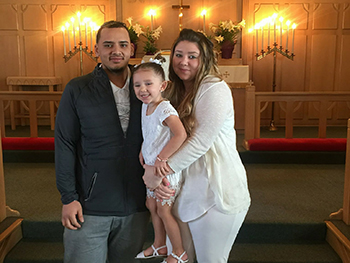
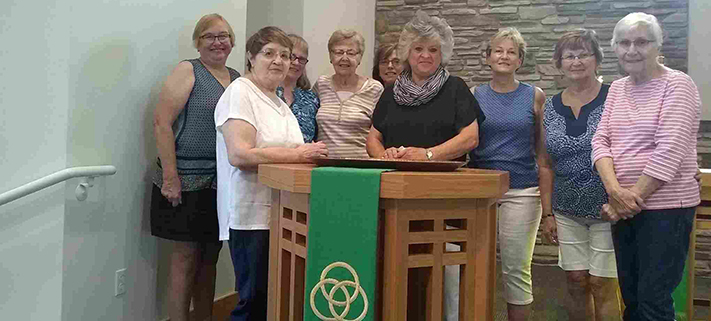
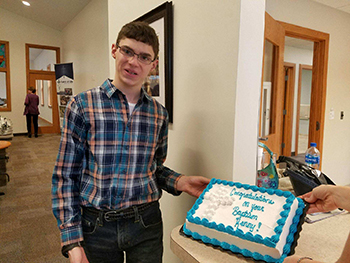

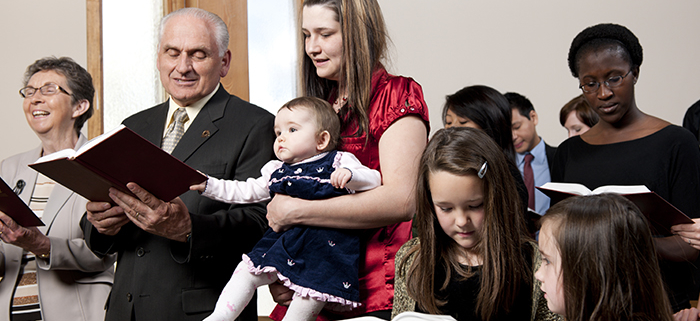
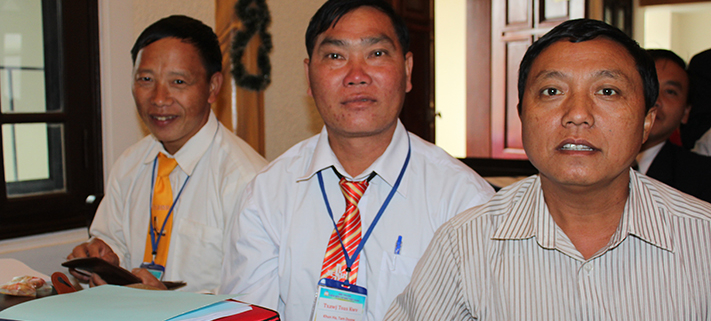
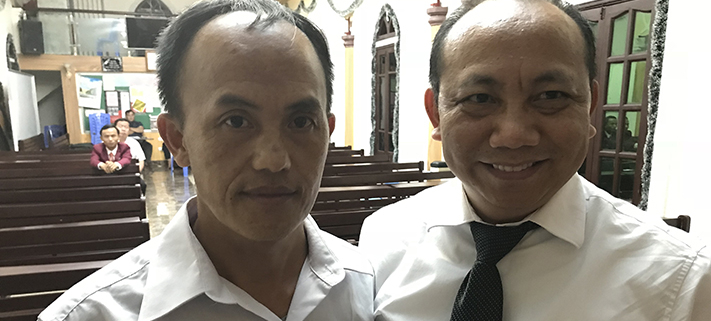

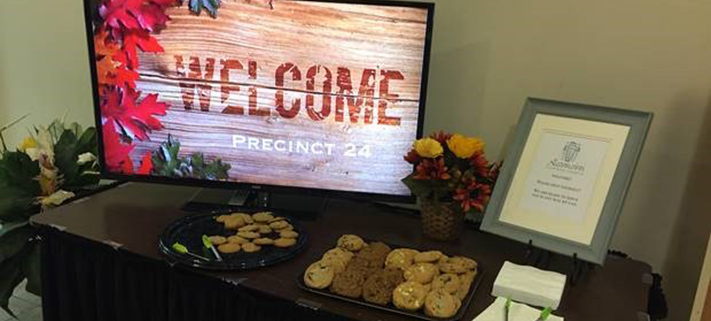
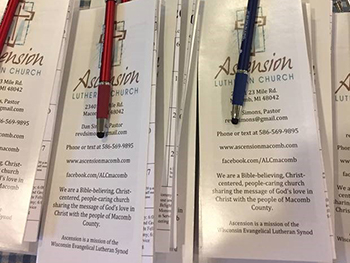
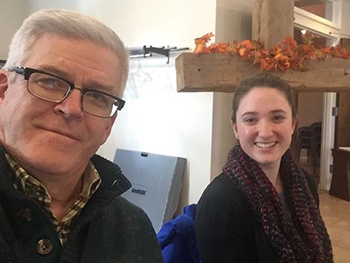
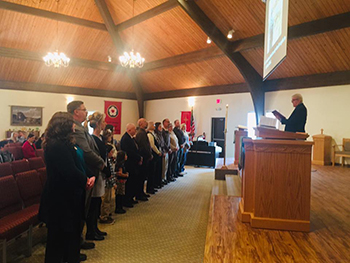
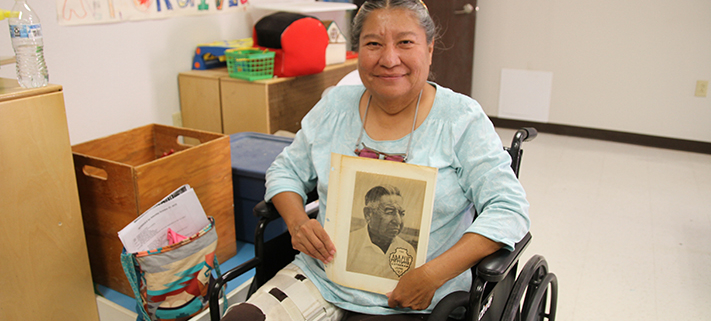
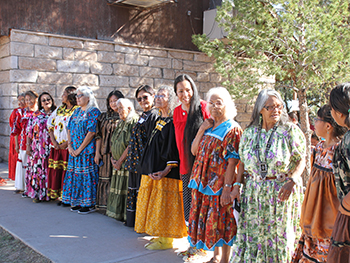
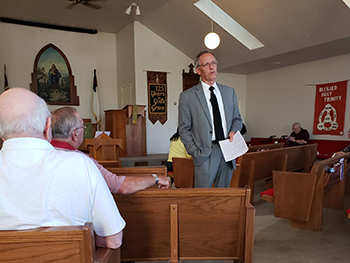
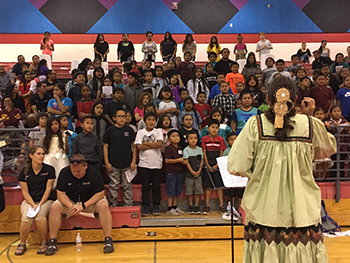

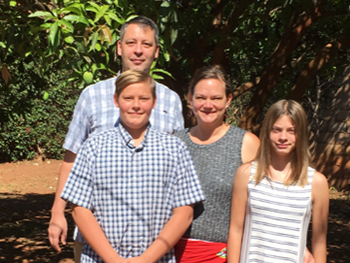

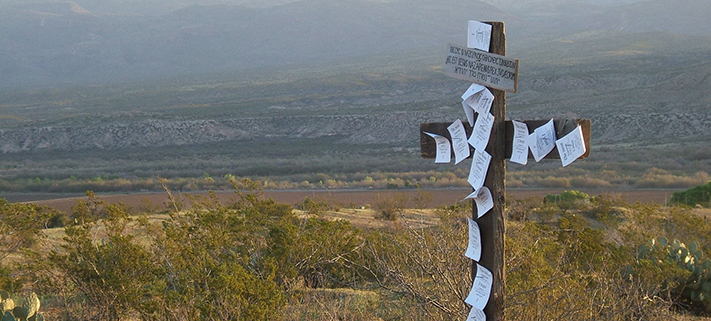
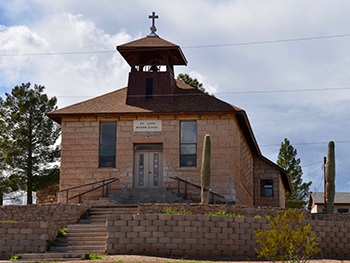
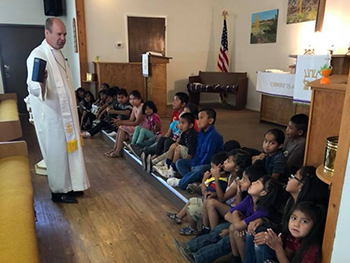
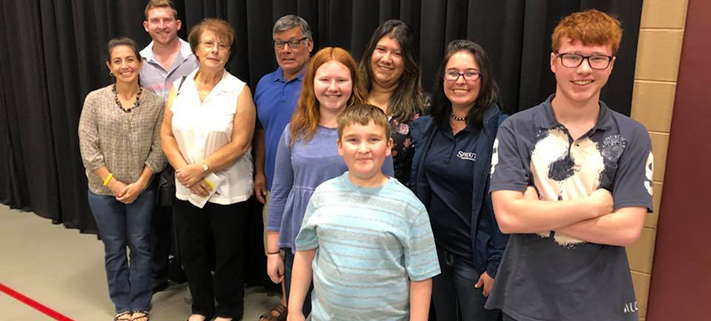
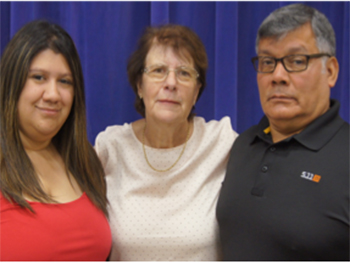
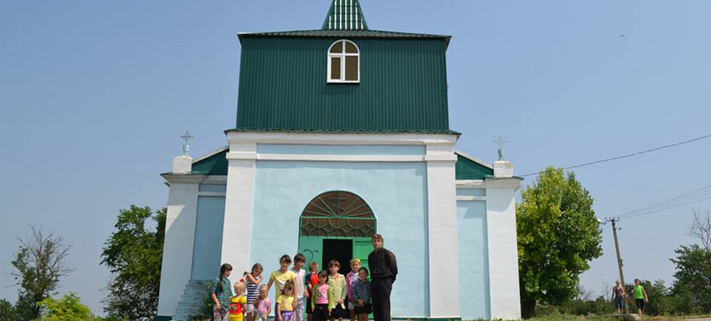
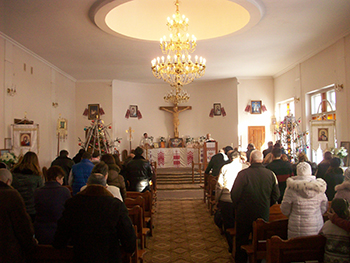

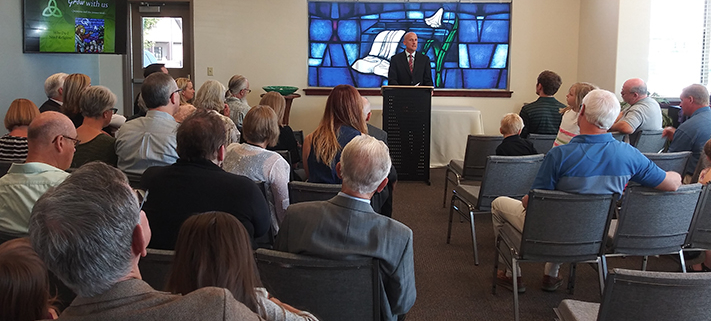
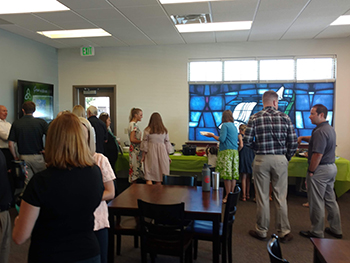

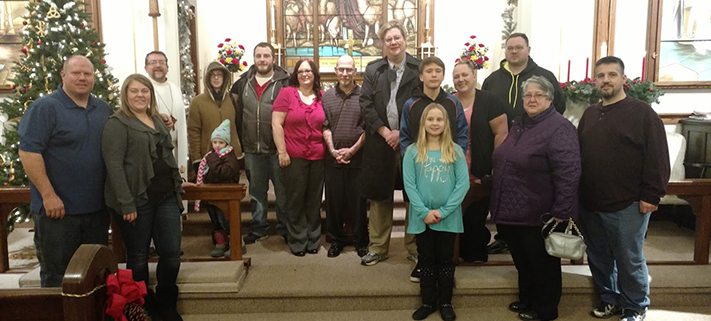

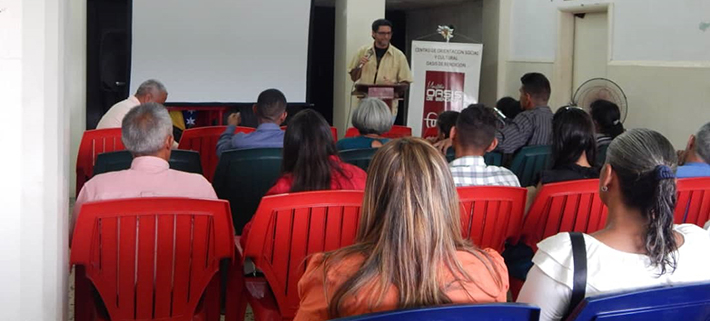
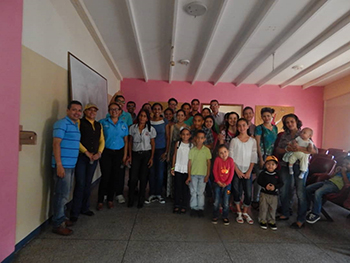

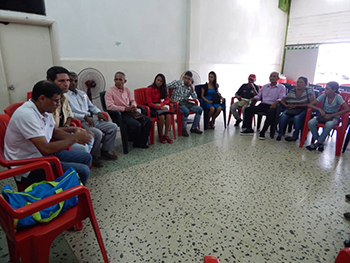




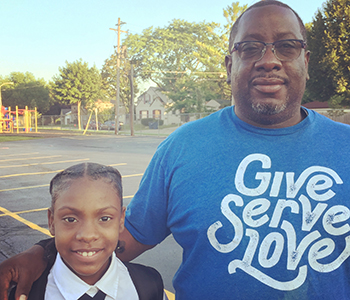

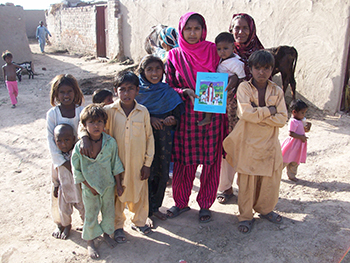
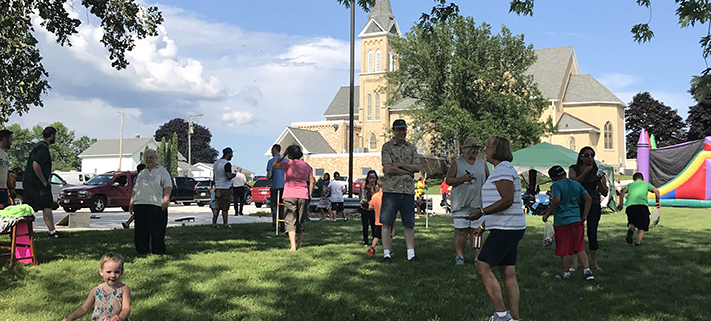




 C18 is a national outreach program with a goal to connect with 1 million unchurched people. Advent planning resources for C18 are available at
C18 is a national outreach program with a goal to connect with 1 million unchurched people. Advent planning resources for C18 are available at 


